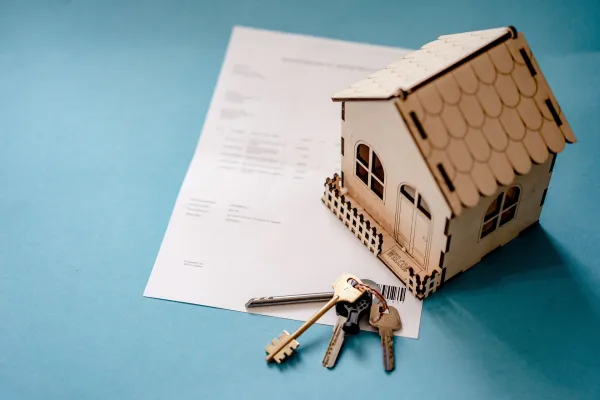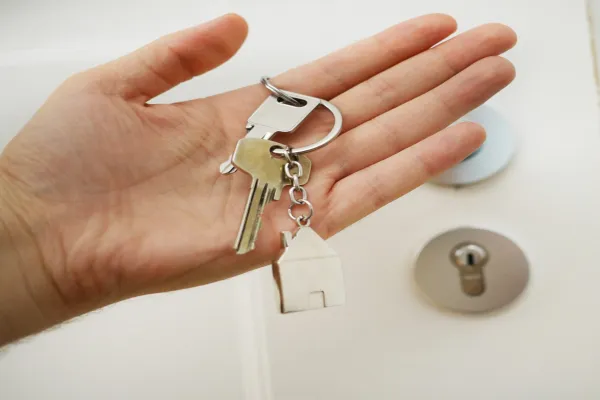Equity release poses a lot of questions. Some people consider it a tool that will help them navigate later life, while others see it as a way to help their family, make home improvements, or perhaps adapt their home for mobility needs.
However, sometimes, even when the equity in a property has been released, the opportunity to sell may be tempting or at least an option that needs to be considered. Luckily, a house sale is still possible with equity release as long as a few criteria are met.
Selling a house with equity release is certainly possible and is something more and more people are considering doing. We looked at what you need to do to be able to sell your house if you have equity release.
What is equity release?
Before we dive into how you can sell a house with equity release, we thought covering some of the key points around equity release may be useful just so you can assess if it is worthwhile for you.
Equity release is something open to homeowners aged 55 or over and it allows them access to a percentage of the equity held in their home. This money is offered as a tax-free sum whereby the homeowner is still able to live in the property and not make mortgage repayments whilst alive. The amount is then repaid upon death or sale of the property. There are two types of equity release that are the most common options.
A lifetime mortgage is the type of equity release most commonly taken by homeowners and allows them to receive cash as a lump sum loan which then accrues interest.
It is in effect, a mortgage against your home that is not repaid until the property is sold or you pass away. Upon selling, once the loan amount and interest are covered, any remaining funds go into the homeowner’s estate. Repayments can be made at any time, or you can allow the interest to accrue and then clear it when the property sells. With this type of equity release, it is always worth investigating the option of a no negative equity guarantee, this way your estate will not be liable for payments totalling more than the value of your home.
Home reversion allows you to sell all or a percentage of the property to a home reversion provider for either a lump sum or regular payments. You can remain in the property for as long as you wish and will need to continue with any maintenance or insurance payments as required. The percentage you own will not change until you release more equity and then when you sell the house, the profits get shared between yourself or your estate and the home reversions provider.
Is equity release a good idea?
This is a frequently asked question and ultimately it depends on your reasons for wanting to release equity against your home. Many people that choose to take an equity release plan look to the benefits it may bring but may not factor in what it may cost them in the longer term.
In many cases, equity is released to help provide for the family, improve the home, or enjoy the later stages of life with a little more cashflow. This can make it sound appealing; the monthly outgoings not being increased but the amount of disposable income rising can lead to equity release being an easy decision. However, it can take 6 – 8 weeks to organise and can come with a mountain of paperwork to complete.
Perhaps the main disadvantage to equity release is that not everybody will be eligible to apply for it. Many lenders want you to own your home outright or at least have only a tiny portion of the mortgage left to pay. Furthermore, it is highly unlikely that the market rate for the home will be offered. In many cases, you could find you are offered anything from 25% to 60% of the true value of the share.
In addition, the costs to set up any type of equity release plan can cost a little under £1,000 but can rise to over £2,000. These are factors worth weighing up before committing.
This isn’t all though, when selling a property with equity release you may find yourself in a worse situation than expected. If you have taken the home reversion equity release option, you could find yourself owning less of your home than expected.
For example, if you sold a 50% share of your home to the reversion provider and then sold the house for £500,000 but bought a new one that cost you just £300,000, they may require a rather significant percentage to maintain the value they initially invested.
Can you sell a home with equity release?
Yes, you can. If, for example, you have a lifetime mortgage, it can be repaid at any time and by any means. Coming into a large sum of money means you could use it to repay the loaned amount. This would allow you to end the equity release agreement early. This is the same with selling. If you were to sell a house that has a lifetime mortgage equity release product attached, as long as the figures from the sale and any further funds you have satisfy the needs of the lender, a sale could be relatively easy. Just be aware that fees for paying the loan back early can incur substantial early payment charges. This is something worth asking about before committing to any equity release plan. In many cases paying back 10 – 40% of the amount borrowed per year will not see any charges added.
Most times though, the equity release will be repaid once the property is sold after death, or the owners move into a long-term care facility.
You would also need to have a qualified surveyor value your house so the loan provider can work out the amount due to be repaid.
Can I move to a new house if I have an equity release?
Some equity release providers will allow you to take advantage of portable equity release, this can vary per provider though. Most will set specific requirements for you to meet, the property being freehold for example. If the property is valued at less than the one you were living in, there is every chance that you may need to pay back some of the loan and the accrued interest.
You could find that you are offered downsizing protection or have the chance to apply for it. This means you could avoid the early repayment fees.
Are there alternatives to releasing equity in my home?
If your equity release aimed to raise funds, perhaps to help other family members financially or help achieve some expensive life goals, you could consider selling your house online instead. The process can be a long one if you were to aim to complete within the more traditional means but online estate agents like SOLD.CO.UK help you sell much quicker and secure the funds faster. Not only will you have no early repayment fees to pay back but the money you receive from the house sale is all yours to put towards the property you want to buy.
If releasing funds fast is an option you are considering, speak to the team at SOLD.CO.UK, we are experts in securing fast property sales and helping you achieve your property goals. With no commission, our free sales service means you can move fast and free easily.
















